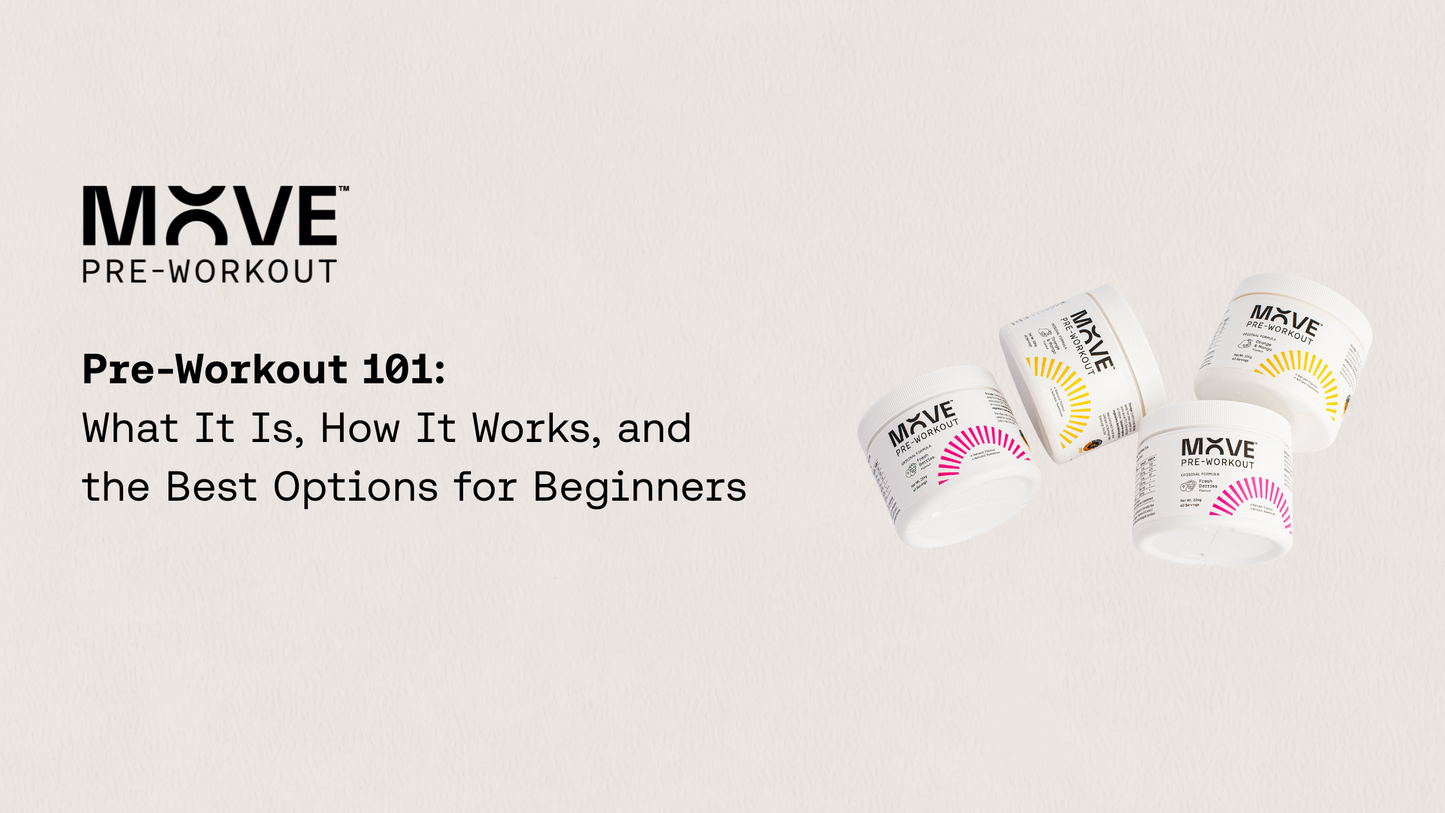
Whether you’re new to the gym or just looking to level up your training, you’ve likely heard the term pre-workout tossed around. But what exactly is pre-workout, how does it work, and how do you choose the right one for you?
In this article, we’ll break down everything you need to know about pre-workout supplements: what they do, the key ingredients you should look for, and how to find the best pre-workout to enhance your performance — without the jitters.
What Is Pre-Workout and What Does It Do?
Pre-workout supplements are designed to boost your energy, focus, endurance, and performance during exercise. Typically consumed 15–30 minutes before a workout, they help provide the mental and physical edge you need to push through tough training sessions.
A good pre-workout can:
- Increase energy for better workouts
- Enhance endurance so you can train harder, longer
- Improve mental focus to keep you sharp
- Boost blood flow to muscles for better pumps
Key Ingredients in Pre-Workout: What to Look For
A quality pre-workout is all about the ingredients. Here’s a breakdown of the key ones to watch for:
1. Caffeine
Caffeine is a well-known stimulant that provides energy and focus. It helps increase alertness and performance, especially during high-intensity workouts. Aim for around 150–250 mg of caffeine per serving to avoid feeling overly stimulated.
2. L-Arginine
L-Arginine is an amino acid that boosts blood flow by increasing nitric oxide levels in the body. This leads to better circulation and muscle pumps — helping with performance and recovery.
3. Creatine
Often included in pre-workouts, creatine supports energy production in muscles during high-intensity exercise. It’s effective for strength and power-based workouts.
What to Avoid in Pre-Workout Supplements
While some pre-workouts can deliver incredible benefits, others are packed with unnecessary additives. Here’s what to avoid:
- Artificial sweeteners or colours: These can cause bloating or digestive discomfort.
- Over-stimulating doses of caffeine: Too much caffeine can leave you feeling jittery or anxious, especially if you’re a beginner.
- Under-dosed formulas: Always check the ingredient dosages to ensure you're getting enough of each active compound to be effective.
How to Choose the Right Pre-Workout for Beginners
As a beginner, it's essential to choose a pre-workout that fits your energy needs and training goals. Here’s what to consider when picking the right one:
1. Energy and Focus Needs
- For energy: Look for pre-workouts with moderate caffeine levels (150–250mg).
- For focus: Ingredients like L-Tyrosine can improve mental clarity and focus during your workout.
2. Clean Label
Opt for clean pre-workout powders that exclude artificial sweeteners, additives, and fillers. This ensures you’re getting only high-quality ingredients that will support your performance.
3. Taste and Mixability
Don’t forget the basics: Choose a pre-workout that mixes easily and tastes good. No one wants to deal with clumps or unpleasant flavours.
Best Pre-Workout for Beginners
If you’re just starting out and looking for a clean, effective pre-workout, here are a few recommendations — including MOVE Pre-Workout, which we highly recommend for its clean ingredients and reliable performance.
1. MOVE Pre-Workout
Why it’s great for beginners: MOVE Pre-Workout provides clean, smooth energy with no crash or jitters. It’s packed with caffeine, L-Tyrosine, and L-Arginine — giving you focus, endurance, and a clean performance boost.
- No artificial sweeteners or colours
- 228 mg natural caffeine
- Clean, effective energy with no crash
(Note: No Beta-Alanine, so you won’t feel that tingling sensation.)
2. Naked Energy
Another great option, Naked Energy is a simple, no-frills pre-workout that’s perfect for those who want a minimalistic formula.
- Only a few clean ingredients
- Caffeine-based energy
- No sweeteners or fillers
Timing and Dosage: How to Avoid Jitters and Crashes
When to Take Pre-Workout?
Take your pre-workout 30–45 minutes before your workout to allow it to kick in. You don’t want to take it too early and risk the effects wearing off, but you also don’t want to leave it too late.
How Much to Take?
Start with a smaller dose if you’re new to pre-workout. Many pre-workouts suggest starting with half a serving to assess your tolerance.
Avoid Jitters and Crashes
- Stick to moderate caffeine doses (around 150–250mg).
- Avoid taking pre-workout on an empty stomach if you’re sensitive to stimulants.
- Stay hydrated to reduce the risk of dehydration-related side effects.
Is Pre-Workout Safe for Beginners?
Yes! As long as you stick to the recommended dose and choose a clean, quality formula, pre-workout is completely safe for beginners. Start slow, and listen to your body. If you feel any discomfort, reduce your dosage or switch to a lower-caffeine option.
Can I Take Pre-Workout on an Empty Stomach?
While it’s safe to take pre-workout on an empty stomach for most people, it might cause stomach discomfort for some. If you’re new to pre-workouts, try taking it with a small snack to see how your body reacts.
Final Thoughts: Fuel Smarter, Train Harder
A clean, effective pre-workout can make a huge difference in your training, helping you feel more focused, energised, and ready to push your limits.
For beginners, start with MOVE Pre-Workout, a clean option with no artificial junk that will help you stay on track without the jitters. Remember, always choose pre-workouts with quality ingredients, and take them at the right time for the best results.
Fuel smarter. Train harder. Get the results you’ve been working for!
